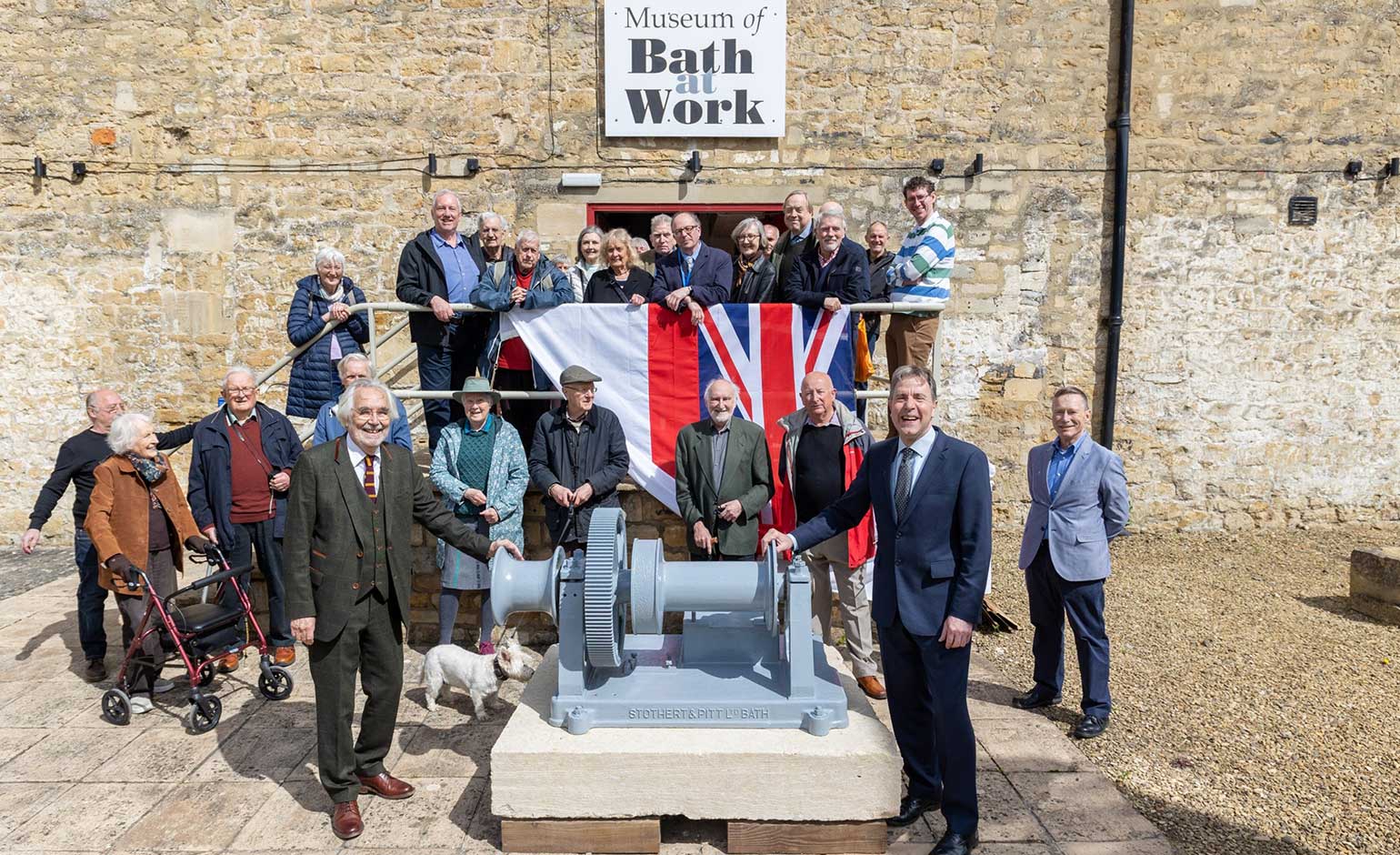Funding from the West of England Combined Authority has helped restore a piece of Royal Navy history, built by Bath engineering company Stothert and Pitt.

Unveiling the restored winch | Photo courtesy of WECA
The rare ship “winch”, which was used aboard Royal Navy warships during the Second World War, has been repaired, repainted and restored to its former glory by a team of volunteers from the Museum of Bath at Work.
Originally electrically powered, the 1.5-tonne hand-operated winch, made in the city in 1932, would have been used to lift heavy machinery aboard ships.
The winch has been mounted upon a recently mined block of Bath Stone, donated by the Bath Stone Company in Limpley Stoke, and installed on the front courtyard outside the museum.
West of England Metro Mayor Dan Norris said: “This is an important piece of Royal Navy, and West of England, history.
“I want to thank Stuart and his team of dedicated volunteers who have spent months restoring this ship winch to its former glory.

Dan Norris with Chair of trustees Trevor Turpin, life member & author Kirsten Elliott, and Islay the dog | Photo © WECA
“Stothert and Pitt is an important part of our great region’s industrial heritage. The cast iron items they built in Bath dotted the docks of the West, and were shipped all over the world.
“The West of England Mayoral Combined Authority I lead is committed to working with local people on projects that bring pride to our area.”
Funding from WECA has also seen the museum install new wall mounted displays in its galleries, as well as new exterior lighting.
Museum of Bath at Work Director, Stuart Burroughs, added: “Products from Bath made by Stothert and Pitt were exported across the globe and the firm was known as ‘The World’s Crane makers’, but they were famous for much more.
“We celebrate business and innovation in the city, both past and present, and this is tangible proof of our mission.”
Stothert and Pitt was founded in 1855 and made various cast iron items in the city, including the four famous Grade II listed electric cranes outside M Shed on Bristol’s harbour side.
The grant is part of a £140,000-plus fund designed to support small museums and other local attractions across the region.



